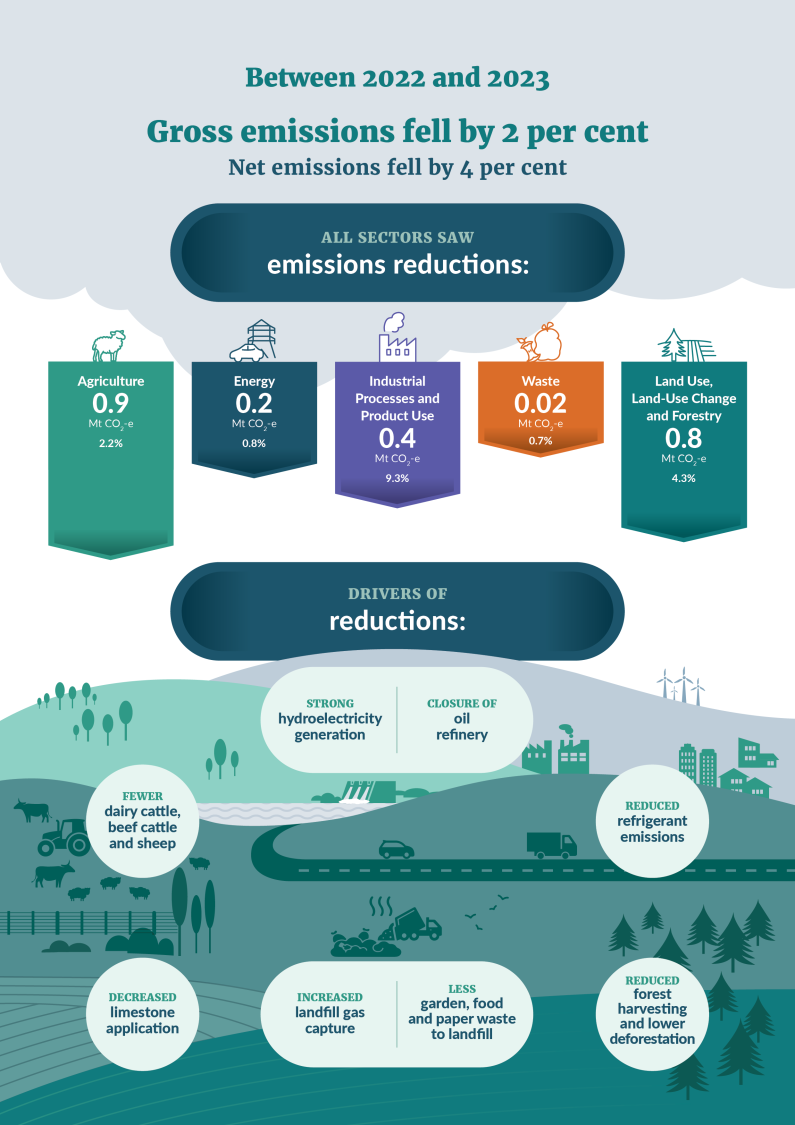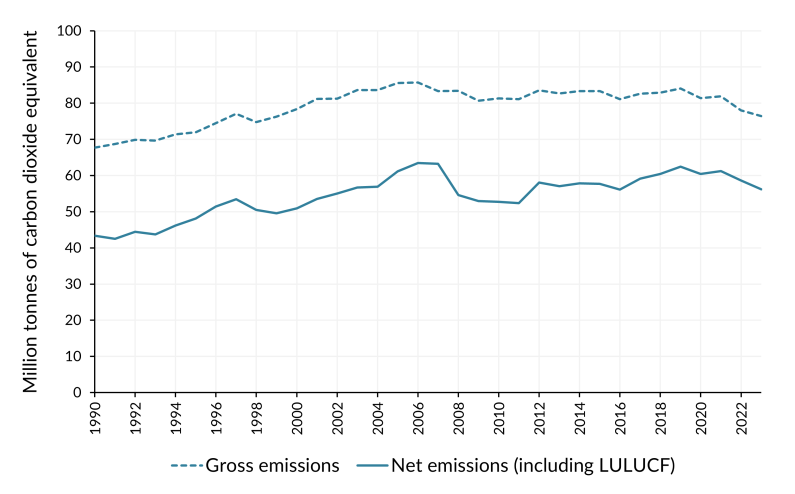
Emissions fell across every sector in New Zealand in 2023
New Zealand’s Greenhouse Gas Inventory shows emissions trends from 1990 to 2023.

New Zealand’s Greenhouse Gas Inventory shows emissions trends from 1990 to 2023.
Aotearoa New Zealand reduced its gross greenhouse gas emissions by 2 per cent in 2023.
That is about the same as the emissions produced by a quarter of New Zealand cars in a year.
New Zealand’s Greenhouse Gas Inventory (1990-2023) shows gross emissions (total emissions other than forestry) were 76.4 million tonnes of carbon dioxide equivalent (Mt CO2-e) in 2023, 1.6 Mt CO2-e lower than in 2022.
Forests and other land uses absorbed 26 per cent of these emissions in 2023, meaning New Zealand’s net emissions dropped to 56.2 Mt CO2-e. Net emissions were 4 per cent lower than in 2022.
The Inventory is the official report of all the emissions produced and removed by human activities within New Zealand, and is compiled every year by the Ministry for the Environment.

There was a 2 per cent drop in agricultural emissions in 2023, due to reduced numbers of sheep, dairy cattle and beef cattle. Agricultural emissions have been falling since 2014, mainly because of reducing livestock populations enabled by improved productivity. Emissions are also influenced by market forces such as the price of fertiliser, and the price of emissions in New Zealand’s Emissions Trading Scheme.
Renewable electricity generation contributed to a 1 per cent fall in emissions from the energy sector in 2023. Like 2022, 2023 was a wet year that was good for hydroelectricity generation, meaning New Zealand used less coal and gas. The closure of Marsden Point also contributed, with zero emissions from petroleum refining in 2023.
There were also decreases in emissions from the industrial processes and waste sectors, as well as Tokelau, which reports its emissions in the Inventory, but these sectors make up much smaller proportions of New Zealand’s emissions.
New Zealand’s Greenhouse Gas Inventory tracks emissions since 1990. New Zealand's gross emissions climbed in the 1990s until peak in 2006. Since then, they have been relatively stable. Gross emissions fell in 2022 and 2023.
The Inventory covers historical emissions. Other reports provide information on progress towards emissions reduction targets. Projections released in December 2024 suggest New Zealand’s emissions will fall between now and 2050 as it continues to implement its emissions reduction plans.

New Zealand’s Greenhouse Gas Inventory is compiled and submitted as part of our responsibilities under the Paris Agreement and the United Nations Framework Convention on Climate Change.
Accurate measurements and reporting of our emissions are also critical to inform New Zealand’s climate change decisions.
For more about the Inventory see: New Zealand's Greenhouse Gas Inventory | Ministry for the Environment